“百花生日是良辰,未到花朝一半春。”
The Qing Dynasty poet Cai Yun once wrote a poem,
"in the Flower Festival, flowers are in full bloom,
which means spring is half over."
在盎然的生机中,街头巷尾的花朵开始悄悄开放,一年一度的“花朝节”,也随之到来了。花朝节,是古人纪念百花的生日所设立的节日。
Flower Festival is the birthday of all flowers celebrated on Feb 15 of lunar calendar.
因中国幅员辽阔,地域气候差异大,所以花朝节举行时间并不固定,跟各地的花信早迟有关,一般在农历二月之间。在中国古代的神话传说中,花神是中国民间信仰的百花之神,同时百花各有其司花之神。又因历代文人墨客玩味和吟咏百花,从而造就出十二个月的花神来。
Due to China's vast territory and great differences in regional climate, the time of the flower festival is different. It is related to bloom dates in different places, generally between the second month of the lunar calendar. In ancient Chinese myths and legends, each flower has its own flower god. The literati of the past dynasties wrote many articles and poems to praise flowers. Therefore, some of them are known as the god of flower.
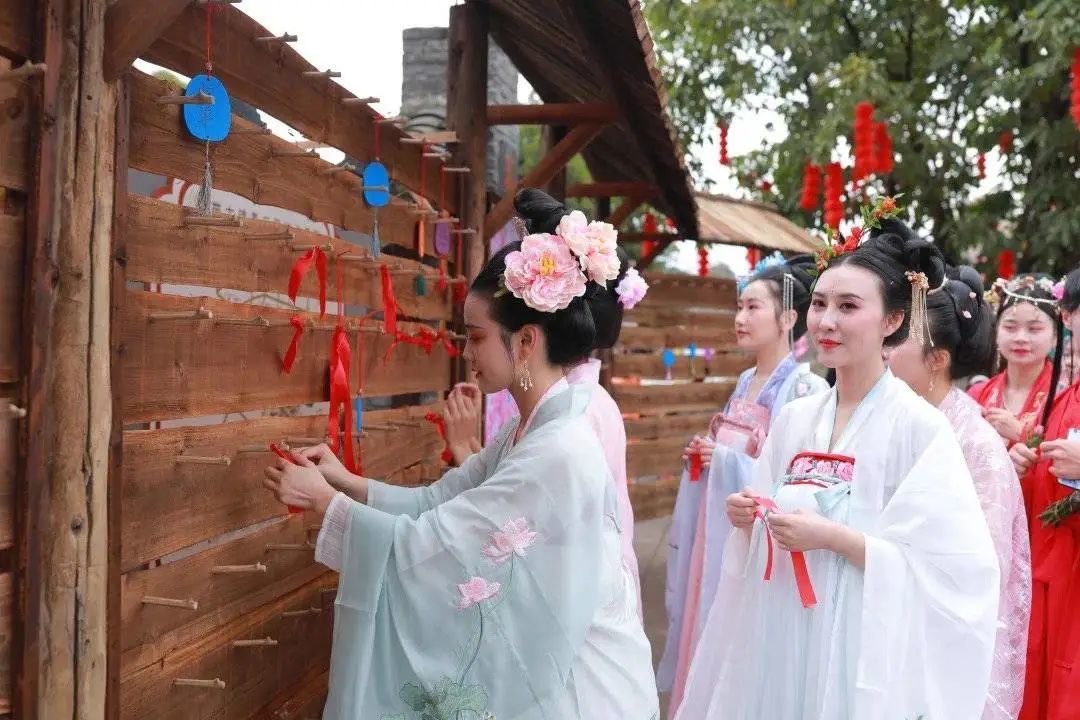
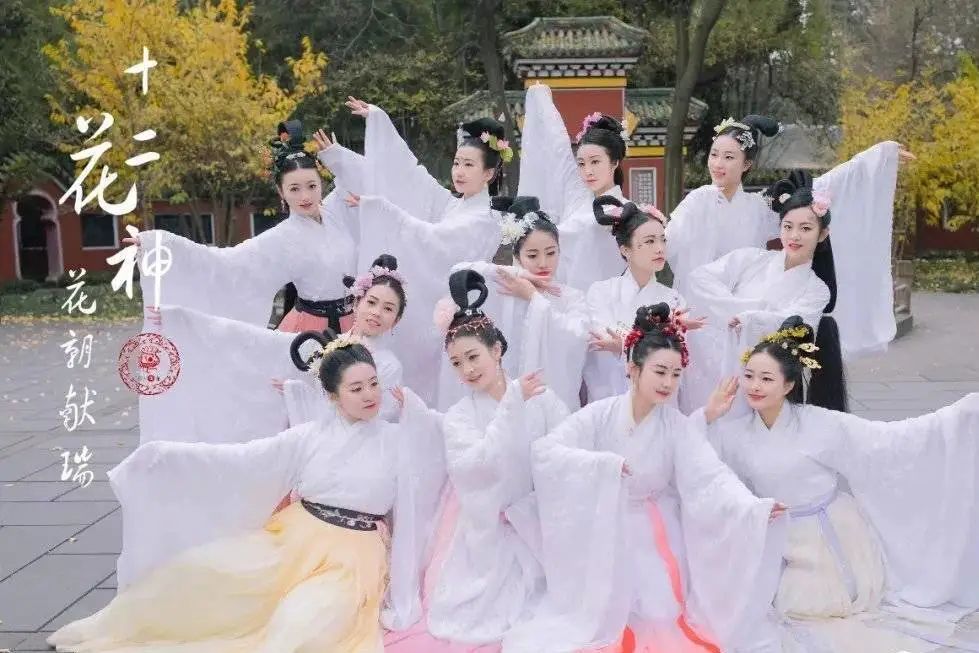
在当下汉服爱好者们组织的花朝节活动中,“祭祀花神”成为了必不可少的项目。其实在古代,人们也在这一日祭花神,不少农人还要聚集于花神庙内设供,有的地方还要演戏娱神,通常是由十二伶优分扮每年十二月的花神。
In the Flower Festival organized by Hanfu enthusiasts, they hold fete ceremony of flower gods. In fact, in ancient times, people also held this ceremony that day. Many farmers gathered in the temple of flowers god to serve offerings. In some places, people will give some performances to entertain the flower gods.
据记载,“十二花神”根据社会风俗与岁时花信的自然规律,按每年十二个月冠以花名而成。根据时代的变化,不同的朝代所追崇的花神并不相同。后人都熟知的古代四大美人,其实在不同的朝代,都先后被尊崇为“十二花神”之一。
Different flowers bloom during the twelve months. People chose twelve flowers according to the time they bloom as the name of the flower gods. Different dynasties worship different flower gods. The four beauties of ancient times well known by later generations, were successively honored as one of the Twelve Flower Gods in different dynasties.
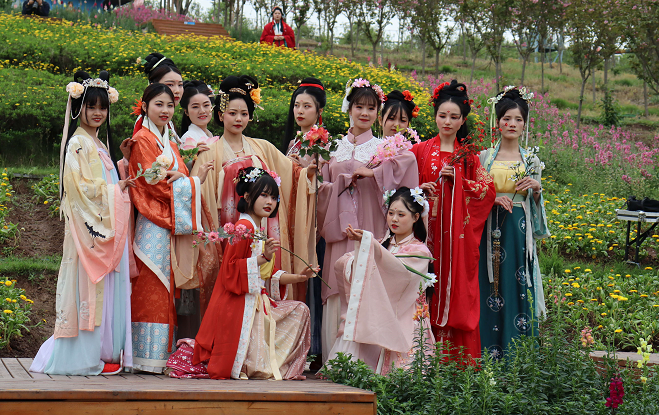
蜀地的成都又称“蓉城”,相传在五代十国时期,后蜀皇帝孟昶为讨妃子“花蕊夫人”的欢心,于是在城中遍种芙蓉,成都便因花而得此名。而“花蕊夫人”,也被后世称为是十月芙蓉花神。
Chengdu, is also known as Rong City. Rong means hibiscus mutabilis. According to legend, during the period of Five Dynasties and Ten Kingdoms (907-960 AD), in order to please his concubine, Lady Huarui, Emperor Meng Chang planted hibiscus all over the city, and Chengdu was named after the flower. And Lady Huarui also known as the flower goddess of October.
可见,四川这片土地上自古便有着爱花的基因,而在20位四川历史名人中,也暗藏着“十二花神”。在流传下的“十二花神”的版本之一中,苏东坡是芍药花神。他曾写下“人老簪花不自羞,花应羞上老人头”一诗,这样看来,爱花也爱簪花的苏轼,位于“十二花神”之列自是应当。
Sichuan people has the gene that loves flowers since ancient times. In one of the surviving versions of the twelve flower gods, Su Dongpo is the god of Paeonia lactiflora. He once wrote the poem "人老簪花不自羞,花应羞上老人头"(which means I am so old that I still wear flowers in my hair). Su Shi, who loves flowers, should be placed among the Twelve Flower Gods.
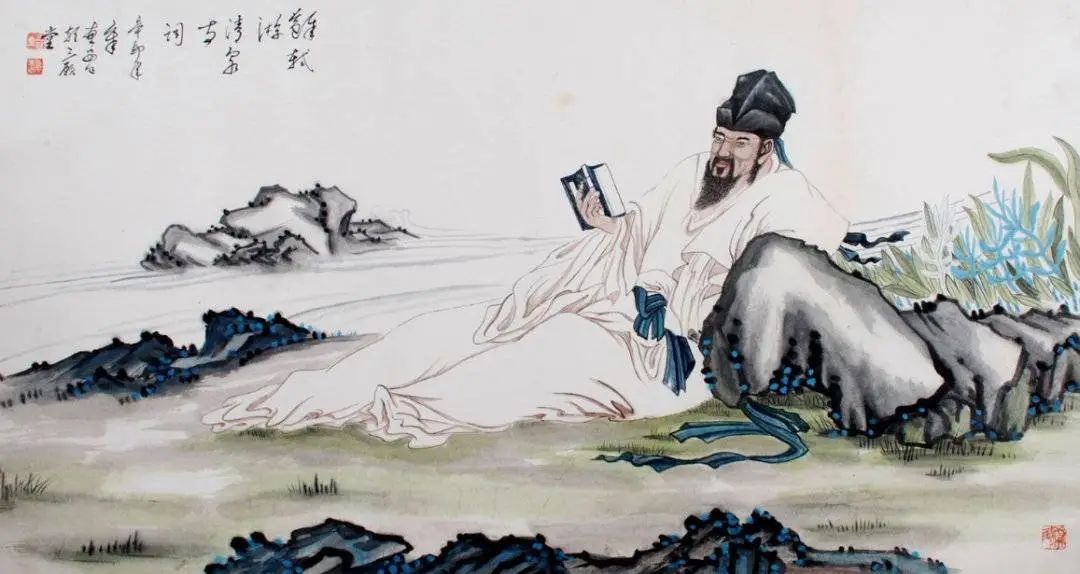
此外,李白则是四月牡丹花神。其实,古时关于牡丹的花神传说众多,或说貂蝉,或说丽娟(汉武帝的宠妃),但是以李白最为知名。一句“云想衣裳花想容,春风拂槛露华浓”,成为了写牡丹的佳作。
In addition, Li Bai is also the flower god of Paeonia suffruticosa. There are many versions of who this flower god is. Some say it is Diaochan, some say it is the concubine of Emperor Wu of the Han Dynasty. Li Bai, who wrote a poem about peonies, became the most famous gods of peony.
虽然曾兴盛一时的花朝节,在岁月的变迁中日渐没落。但在景色宜人的仲春之时,享受节日的乐趣,花朝节的风韵,仍存留在当代人的生活印记中。
Although the Flower Festival was once popular, it has gradually declined in the changes of the years. But in the pleasant mid-spring, the charm of the Flower Festival still remains in the mind of contemporary people.
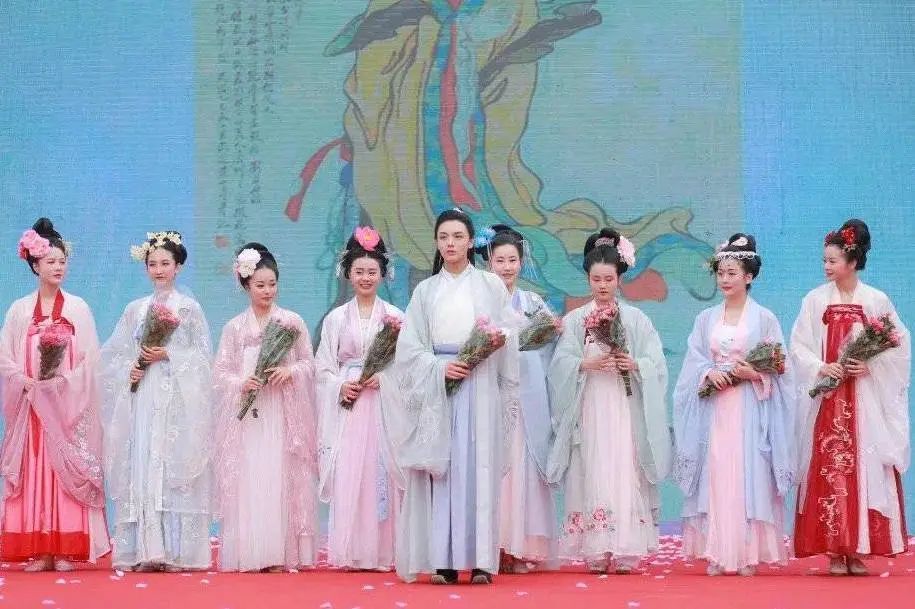
记者:李雨心
图文综合:封面新闻 川观新闻
【未经授权,严禁转载!联系电话028-86968276】




























